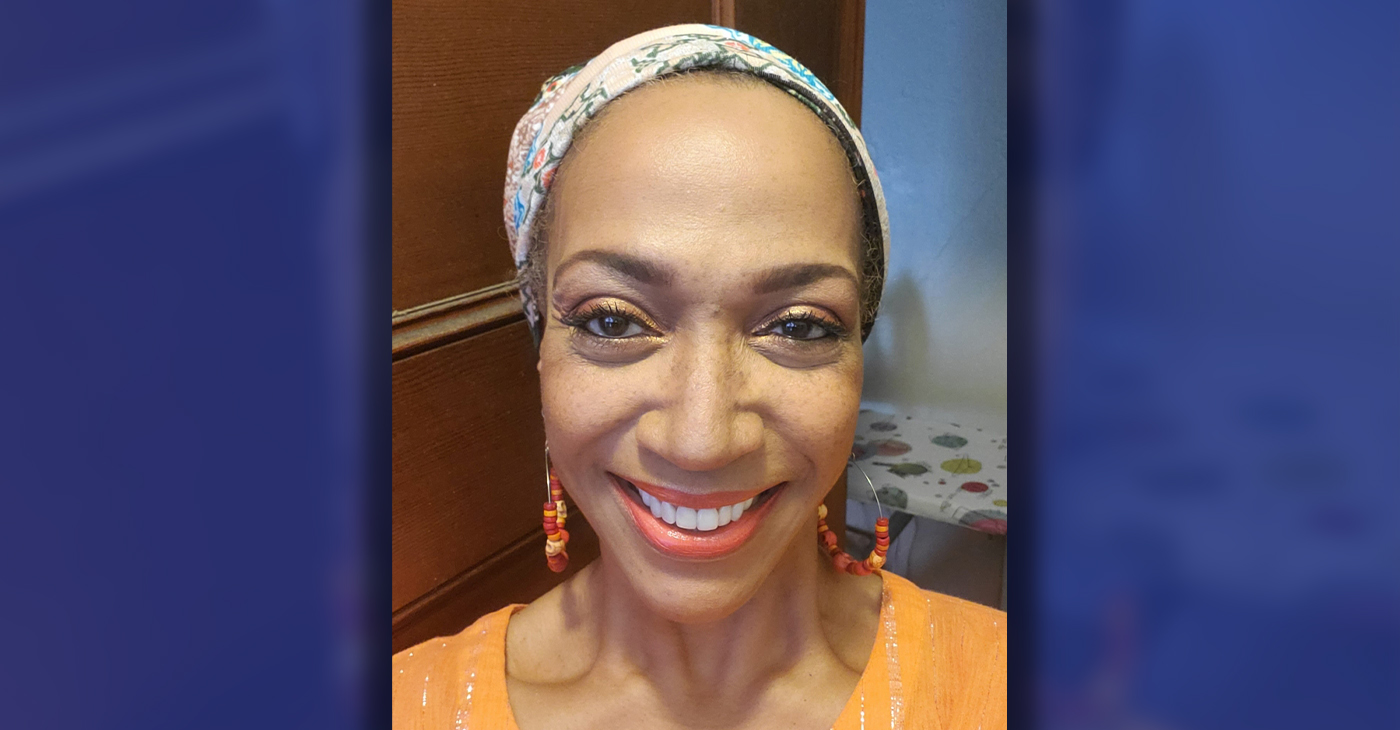Lifestyle
Chillin’ in Inglewood at the 2019 Earth Day Music Festival
LOS ANGELES SENTINEL — The festivities were already on and crack a lackin when I arrived on the scene. Several thousand people, 4,000 to be exact, from near and far heeded the invite to join the City of Inglewood for one of their signature events.
By Ricky Richardson
The City of Inglewood partnered with Clippers Arena Inglewood, Consolidated Disposal Service (A Republic Service Company), West Basin Municipal Water District and 102.3 FM, RadioFree KJLH for the annual Earth Day Music Festival, Saturday, April 20, 2019, on the South Lawn of City Hall.
The festivities were already on and crack a lackin when I arrived on the scene. Several thousand people, 4,000 to be exact, from near and far heeded the invite to join the City of Inglewood for one of their signature events.
The City of Inglewood presented this event as part of their commitment to quality living and visionary leadership, to protect and respect the environment. A huge round of applause and shout out are for Angela Williams and Joi Aldridge of the Environmental Services Division of the Public Works Department, for organizing and producing the Earth Day Music Festival. This was a tremendous undertaking with immediate and noticeable rewards-4,000 happy faces and smiles. Various resources booths provided information to raise awareness about our responsibility to Mother Earth.
The host of this fun-filled, engaging family event was none other than, Guy Black, Radio Personality, 102.3 FM, RadioFree KJLH. DJ Jeff Onee manned the soundboards to provide an eclectic mix of music to enhance the vibes of the Earth Day Music Festival.
Singer/Songwriter Phillip Lauth made a returned engagement to entertain the crowd. Mr. Lauth is the artist who holds the record for the most appearances/performances at the Earth Day Music Festival. That says a lot about his popularity.
Actor/comedian Flex Anderson introduced his wife, Shanice as the next performer to take to the stage. Her opening tune was “Can You Dance,” featuring a multi-cultural talented group of dancers. She continued her set with “The Way You Love Me.” The next portion of her set honored her musical influencers, first with “Square Business,” by Teena Marie, “Heart Break Hotel,” by Michael Jackson followed by “Lovin’ You,” by Minnie Riperton. I can assure you that Shanice hit all the high notes and the right notes. Shanice continued her set with “Saving Forever for You,” “Don’t Settle for Less,” “This Love is Real,” “I’ll be Your Fantasy,” “I Love Your Smile,” and closed her set with “I Won’t.”
Club Nouveau consisting of vocalist Jay King, Valerie Watson English and Samuelle Prater laid down a heavy dose of R&B, Soul and high-octane dance tunes. They cast a spell that had the crowd “Under a Nouveau Groove” throughout their set. The opened their set with “Let It Go,” followed by “That Ain’t Love,” from their latest CD/EP Consciousness. Club Nouveau continued their set with “Tonight, Get a Hold of Me,” “Heavy on my Mind,” “Situation #9,” “Why You Treat Me So Bad,” “ I Want to Change the World,” and concluded their set with an up-tempo version of “Lean on Me.”
Susie Hansen Latin Band literally heated up the festivities with a set of spicy, Latin rhythms to the delight of the salseros in the crowd. The sun finally came out during their set. Up until their set, everyone was bundled up on this unusually cold day in the Southbay.
Two soulful crooners performed backed to back sets. Kenny Lattimore and Eric Benet turned up the wow factor to the delight of their adoring fans. Stevie Wonder made a surprise appearance to introduce Eric Benet. What an honor.
The rest is history in the making, ladies and gentlemen, boys and girls. The Conductor of Funk introduced the last and final act of the evening. Con Funk Shun turned up the throttle and went full steam ahead with a set of classic hits from their extended catalog. Their set was “Ffun,” and people had no choice but to “Shake and Dance with Me” throughout their highly entertaining set.
This evening will go down in the record books as the largest and most successful Earth Day Music Festival in Inglewood. The producers of this year’s festival raised the bar for future celebrations. Don’t be surprise if next year’s stellar line-up continues to broaden and enhance the Earth Day Music Festival, one of several signature events in the City of Inglewood. Stay Tuned!!!
This article originally appeared in the Los Angeles Sentinel.
Black History
Ashleigh Johnson: Pioneering the Way in Water Polo
Ashleigh Johnson attended Princeton University, where she played for the Tigers and dominated collegiate water polo. During her time at Princeton, she became the program’s all-time leader in saves and was recognized for her extraordinary ability to anticipate plays and block shots. She was a three-time All-American and was pivotal in leading her team to multiple victories. Balancing rigorous academics and athletics, she graduated with a degree in Psychology, showcasing her determination both in and out of the pool.

By Tamara Shiloh
Ashleigh Johnson has become a household name in the world of water polo, not only for her incredible athleticism and skill but also for breaking barriers as the first Black woman to represent the United States in the sport at the Olympic level. Her journey begins as a determined young athlete to a record-breaking goalkeeper.
Born on September 12, 1994, in Miami, Florida, Ashleigh grew up in a family that valued sports and academics. She attended Ransom Everglades School, where she was introduced to water polo. Despite water polo being a niche sport in her community, she quickly stood out for her remarkable agility, intelligence, and reflexes. Her unique skill set made her a natural fit for the demanding role of a goalkeeper.
Ashleigh attended Princeton University, where she played for the Tigers and dominated collegiate water polo. During her time at Princeton, she became the program’s all-time leader in saves and was recognized for her extraordinary ability to anticipate plays and block shots. She was a three-time All-American and was pivotal in leading her team to multiple victories. Balancing rigorous academics and athletics, she graduated with a degree in Psychology, showcasing her determination both in and out of the pool.
In 2016, Ashleigh made history as the first Black woman to be selected for the U.S. Olympic Water Polo Team. Representing her country at the Rio Olympics, she played a crucial role in helping Team USA secure the gold medal. Her stellar performances earned her the distinction of being named the tournament’s top goalkeeper, further cementing her status as one of the best players in the sport’s history.
Ashleigh didn’t just stop at one Olympic appearance. She continued her dominance in water polo, playing a key role in Team USA’s gold medal win at the 2020 Tokyo Olympics. Her ability to remain composed under pressure and deliver outstanding saves in crucial moments made her an irreplaceable member of the team.
At the age of 29, Johnson appeared in her third Olympiad in Paris at the 2024 Summer Olympics. Their first match was against Greece and the US team won easily and Johnson only gave up 4 points. U.S. Olympic head coach Adam Krikorian shared, “She’s an incredible athlete. She’s got great hand-eye coordination, great reflexes and reactions. And then she’s fiercely competitive – fiercely. And you would never know it by her demeanor or by the huge smile on her face. But to us, on the inside, we know how driven she is to be one of the best ever to do it.”
Team USA Women’s Water Polo ended their Olympic season in fourth place after a 10 – 11 loss to the Netherlands. Johnson only allowed 37 percent of the shots from the Netherlands.
Beyond her achievements in the pool, Ashleigh has used her platform to advocate for diversity in water polo and sports in general. As a trailblazer, she recognizes the importance of representation and works to encourage young athletes, particularly those from underrepresented backgrounds, to pursue their dreams.
Ashleigh has spoken about the challenges she faced as a Black woman in a predominantly white sport and how she turned those obstacles into opportunities for growth.
Activism
Books for Ghana
We effectively facilitated cross-continent community building! We met the call and provided 400 books for ASC’s students at the call of the Minister of Education. We supported the work of a new African writer whose breakout novel is an action-packed depiction of a young woman steeped in Ghanaian culture who travels to the USA for college, all the while experiencing the twists, turns, and uncertainties that life brings.

By Min. Rauna Thurston, Chief Mpuntuhene Afua Ewusiwa I
My travels to Afrika began in June 2022, on a tour led by Prof. Manu Ampim, Director of the organization Advancing The Research. I was scheduled to become an ordained Minister by Wo’se Community of the Sacred African Way. It was vital that my feet touch the soil of Kemet and my spirit connect with the continent’s people before ordination.
Since 2022, I’ve made six trips to Afrika. During my travels, I became a benefactor to Abeadze State College (ASC) in Abeadze Dominase, Ghana, originally founded by Daasebre Kwebu Ewusi VII, Paramount Chief of Abeadze Traditional Area and now run by the government. The students there were having trouble with English courses, which are mandatory. The Ghanaian Minister of Education endorsed a novel written by 18-year-old female Ghanaian first-time writer, Nhyira Esaaba Essel, titled Black Queen Sceptre. The idea was that if the students had something more interesting to read, it would evoke a passion for reading; this seemed reasonable to me. Offer students something exciting and imaginative, combined with instructors committed to their success and this could work.
The challenge is how to acquire 800 books?!
I was finishing another project for ASC, so my cash was thin and I was devoid of time to apply for annual grants. I sat on my porch in West Oakland, as I often do, when I’m feeling for and connecting to my ancestors. On quiet nights, I reminisce about the neighborhood I grew up in. Across the street from my house was the house that my Godfather, Baba Dr. Wade Nobles and family lived in, which later became The Institute for the Advanced Study of Black Family Life & Culture (IASBFLC). Then, it came to me…ancestors invited me to reach out to The Association of Black Psychologists – Bay Area Chapter (ABPsi-Bay Area)! It was a long shot but worth it!
I was granted an audience with the local ABPsi Board, who ultimately approved funding for the book project with a stipulation that the Board read the book and a request to subsequently offer input as to how the book would be implemented at ASC. In this moment, my memory jet set to my first ABPsi convention around 2002, while working for IASBFLC. Returning to the present, I thought, “They like to think because it feels good, and then, they talk about what to do about what they think about.” I’m doomed.
However, I came to understand why reading the book and offering suggestions for implementation were essential. In short: ABPsi is an organization that operates from the aspirational principles of Ma’at with aims of liberating the Afrikan Mind, empowering the Afrikan character, and enlivening: illuminating the Afrikan spirit. Their request resulted in a rollout of 400 books in a pair-share system. Students checked out books in pairs, thereby reducing our bottom line to half of the original cost because we purchased 50% fewer units. This nuance promoted an environment of Ujima (collective work & responsibility) and traditional Afrikan principles of cooperation and interdependence. The student’s collaborative approach encouraged shared responsibility, not only for the physical book but for each other’s success. This concept was Dr. Lawford Goddard’s, approved by the Board, with Dr. Patricia “Karabo” Nunley at the helm.
We effectively facilitated cross-continent community building! We met the call and provided 400 books for ASC’s students at the call of the Minister of Education. We supported the work of a new African writer whose breakout novel is an action-packed depiction of a young woman steeped in Ghanaian culture who travels to the USA for college, all the while experiencing the twists, turns, and uncertainties that life brings. (A collectible novel for all ages). A proposed future phase of this collaborative project is for ASC students to exchange reflective essays on Black Queen Sceptre with ABPsi Bay Area members.
We got into good trouble. To order Black Queen Sceptre, email esselewurama14@gmail.com.
I became an ordained Minister upon returning from my initial pilgrimage to Afrika. Who would have imagined that my travels to Afrika would culminate in me becoming a citizen of Sierra Leone and recently being named a Chief Mpuntuhene under Daasebre Kwebu Ewusi VII, Paramount Chief of Abeadze Traditional Area in Ghana, where I envision continued collaborations.
Min. Rauna/Chief Mpuntuhene is a member of ABPsi Bay Area, a healing resource committed to providing the Post Newspaper readership with monthly discussions about critical issues in Black Mental Health, Wealth & Wellness. Readers are welcome to join us at our monthly chapter meetings every 3rd Saturday via Zoom and contact us at bayareaabpsi@gmail.com.
Arts and Culture
In ‘Affrilachia: Testimonies,’ Puts Blacks in Appalacia on the Map

By Terri Schlichenmeyer
The Bookworm Sez
An average oak tree is bigger around than two people together can reach.
That mighty tree starts out with an acorn the size of a nickel, ultimately growing to some 80 feet tall, with a canopy of a hundred feet or more across.
And like the new book, “Affrilachia” by Chris Aluka Berry (with Kelly Elaine Navies and Maia A. Surdam), its roots spread wide and wider.
Affriclachia is a term a Kentucky poet coined in the 1990s referring to the Black communities in Appalachia who are similarly referred to as Affrilachians.
In 2016, “on a foggy Sunday morning in March,” Berry visited Affrilachia for the first time by going the Mount Zion AME Zion Church in Cullowhee, North Carolina. The congregation was tiny; just a handful of people were there that day, but a pair of siblings stood out to him.
According to Berry, Ann Rogers and Mae Louise Allen lived on opposite sides of town, and neither had a driver’s license. He surmised that church was the only time the elderly sisters were together then, but their devotion to one another was clear.
As the service ended, he asked Allen if he could visit her. Was she willing to talk about her life in the Appalachians, her parents, her town?
She was, and arrangements were made, but before Barry could get back to Cullowhee, he learned that Allen had died. Saddened, he wondered how many stories are lost each day in mountain communities where African Americans have lived for more than a century.
“I couldn’t make photographs of the past,” he says, “but I could document the people and places living now.”
In doing so he also offers photographs that he collected from people he met in ‘Affrilachia,’ in North Carolina, Georgia, Kentucky, and Tennessee, at a rustic “camp” that was likely created by enslaved people, at churches, and in modest houses along highways.
The people he interviewed recalled family tales and community stories of support, hardship, and home.
Says coauthor Navies, “These images shout without making a sound.”
If it’s true what they say about a picture being worth 1,000 words, then “Affrilachia,” as packed with photos as it is, is worth a million.
With that in mind, there’s not a lot of narrative inside this book, just a few poems, a small number of very brief interviews, a handful of memories passed down, and some background stories from author Berry and his co-authors. The tales are interesting but scant.
For most readers, though, that lack of narrative isn’t going to matter much. The photographs are the reason why you’d have this book.
Here are pictures of life as it was 50 years or a century ago: group photos, pictures taken of proud moments, worn pews, and happy children. Some of the modern pictures may make you wonder why they’re included, but they set a tone and tell a tale.
This is the kind of book you’ll take off the shelf, and notice something different every time you do. “Affrilachia” doesn’t contain a lot of words, but it’s a good choice when it’s time to branch out in your reading.
“Affrilachia: Testimonies,” by Chris Aluka Berry with Kelly Elaine Navies and Maia A. Surdam
c.2024, University of Kentucky Press, $50.00.
-

 California Black Media4 weeks ago
California Black Media4 weeks agoCalifornia to Offer $43.7 Million in Federal Grants to Combat Hate Crimes
-

 Black History4 weeks ago
Black History4 weeks agoEmeline King: A Trailblazer in the Automotive Industry
-

 California Black Media4 weeks ago
California Black Media4 weeks agoGov. Newsom Goes to Washington to Advocate for California Priorities
-

 Activism4 weeks ago
Activism4 weeks agoOakland Post: Week of November 27 – December 3, 2024
-

 California Black Media4 weeks ago
California Black Media4 weeks agoCalifornia Department of Aging Offers Free Resources for Family Caregivers in November
-

 Activism2 weeks ago
Activism2 weeks agoButler, Lee Celebrate Passage of Bill to Honor Congresswoman Shirley Chisholm with Congressional Gold Medal
-

 Activism2 weeks ago
Activism2 weeks agoPost News Group to Host Second Town Hall on Racism, Hate Crimes
-

 Activism2 weeks ago
Activism2 weeks agoDelta Sigma Theta Alumnae Chapters Host World AIDS Day Event


























































